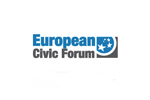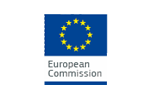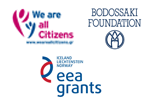“U4EU 2.0: Youth Shaping Europe's Tomorrow" is the successor to the "U4EU: Youth Debating the Future of Europe". U4EU 2.0 continues its mission to empower young people to actively shape the future of Europe, with a primary focus on enhancing youth engagement, democratic participation, and policy advocacy. Building upon the established U4EU youth network and the foundation laid by its predecessor, U4EU 2.0 encompasses a multifaceted approach. It features a series of youth summits, thematic workshops, training sessions, policy development, and advocacy efforts conducted in nine EU countries. These activities address critical challenges faced by young people, including limited engagement in policy-making, awareness gaps regarding EU institutions and policies, digital literacy deficiencies, and disparities in gender and diversity participation.
Through transnational collaboration and leveraging insights from extensive research and prior experience, U4EU 2.0 equips young participants with essential skills, knowledge, and opportunities to become active stakeholders in shaping a more inclusive and democratic Europe. U4EU 2.0 is not just a finite endeavor; it aims to leave a lasting legacy of informed, engaged, and empowered young citizens who continue to advocate for positive change in Europe. By promoting youth participation, strengthening democratic values, and fostering inclusive policies, U4EU 2.0 is a beacon of hope for a brighter European future.
The U4EU 2.0 project aims to take the achievements of the U4EU project to the next level by moving from collecting views to fostering tangible actions and policy engagement. The rationale is clear: to empower young citizens across the nine partner countries and beyond to become active contributors to the EU's decision-making processes. By doing so, the project intends to promote a greater sense of belonging to the EU and its core values among young Europeans.
The project aims to empower young citizens across Europe to become active stakeholders in shaping the future of the EU. Through knowledge sharing, skill development, and inclusive engagement, the project seeks to bridge the existing gaps, promote democratic participation, and create a more inclusive and participatory EU.







